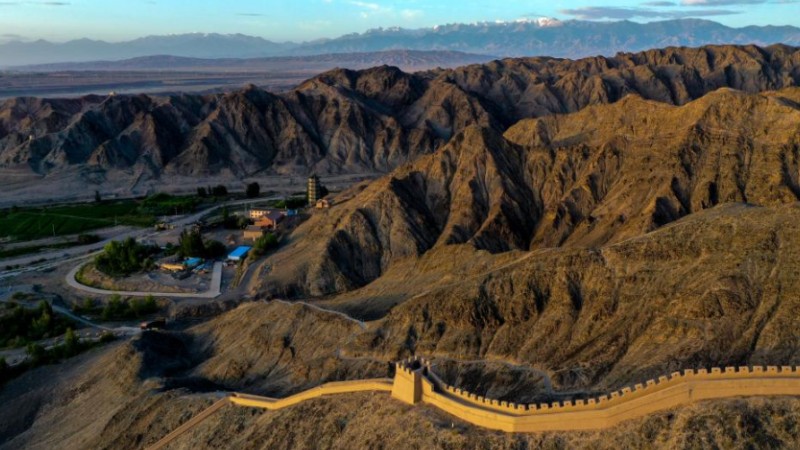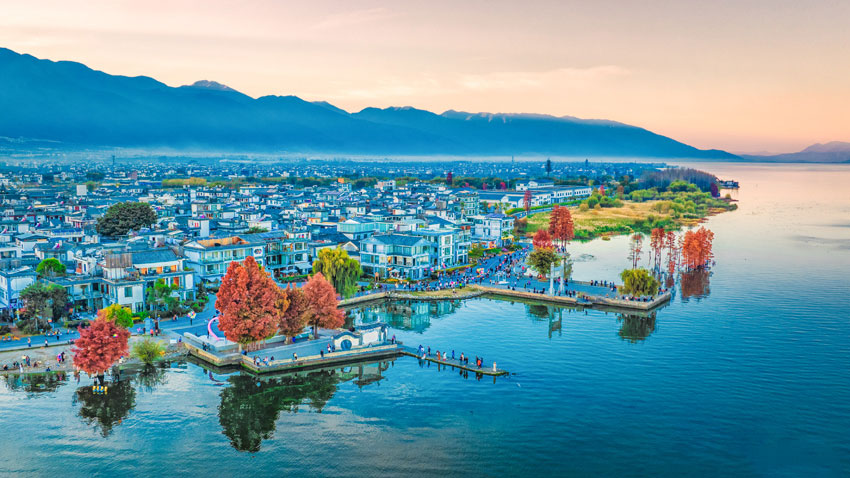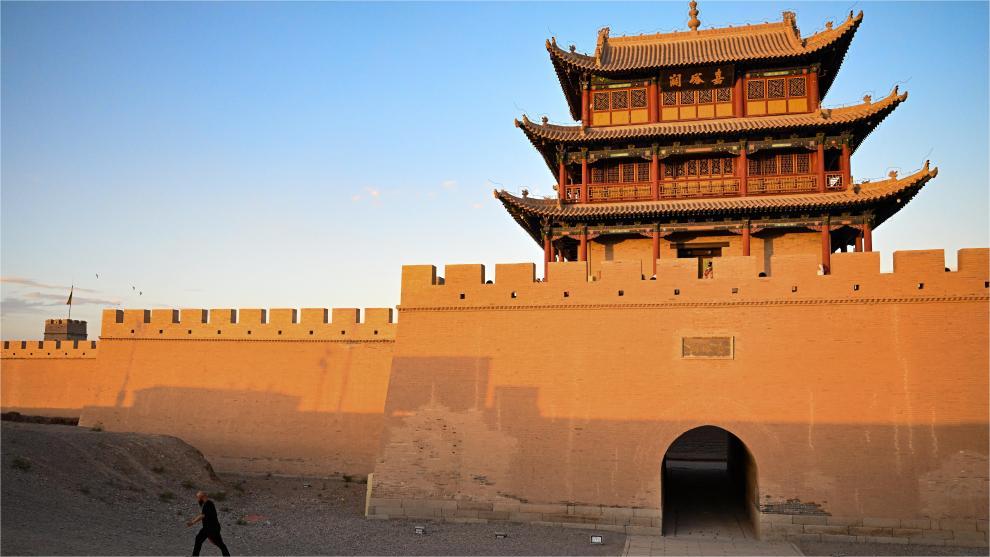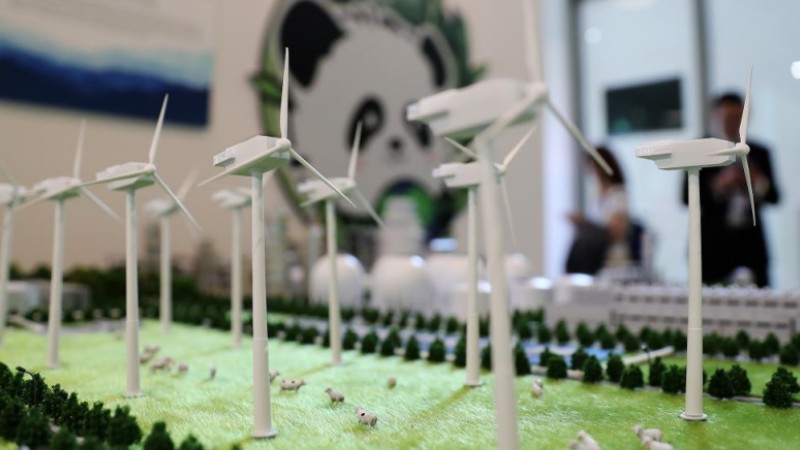UN envoy warns of escalation of tensions between DRC, Rwanda

Bintou Keita (R, Front), the UN secretary-general's special representative for the Democratic Republic of the Congo, speaks at a UN Security Council meeting at the UN headquarters in New York, on Dec. 11, 2023. The top UN envoy in the Democratic Republic of the Congo (DRC), Bintou Keita, on Monday warned of the possible escalation of tensions between the DRC and Rwanda. (Eskinder Debebe/UN Photo/Handout via Xinhua)
UNITED NATIONS, Dec. 11 (Xinhua) -- The top UN envoy in the Democratic Republic of the Congo (DRC), Bintou Keita, on Monday warned of the possible escalation of tensions between the DRC and Rwanda.
The situation in the DRC's North Kivu province further deteriorated in December. Tensions between the DRC and Rwanda have further escalated, heightening the risk of a direct military confrontation that could also draw in Burundi, Keita, the UN secretary-general's special representative for the DRC, told the Security Council.
Tensions between the DRC and Rwanda are very high and the risk of a military escalation between them remains significant despite regional and international efforts to ease tensions, she said.
The two countries accuse each other of support for armed groups in eastern DRC and cross-border incidents have increased, according to the UN secretary-general's latest report submitted to the Security Council on the situation in the DRC.
The security, humanitarian and human rights situation has deteriorated in the south of the North Kivu province in eastern DRC, particularly following the resumption of hostilities between the DRC military and the M23 rebel movement in October, and the M23 offensive in Masisi territory in the province following the start of the withdrawal of East African Community Force troops.
At the request of the DRC government, the mandate of the East African Community Force has not been extended beyond Dec. 8 and the force has begun its withdrawal. At the same time, the Southern African Development Community is preparing for the deployment in the coming weeks of a new force in the DRC.
"These regional efforts are laudable. However, they will not be able to achieve their objectives without the continuous and sustained investment of the Congolese government in regional, national and local political processes for conflict resolution in the east of the country," said Keita. "This investment must go hand in hand with the reform of the Congolese security sector and the implementation of its disarmament and community reintegration program."
Insecurity has compounded the ongoing humanitarian crisis. According to the UN Office for the Coordination of Humanitarian Affairs, over 6.3 million people are internally displaced across the DRC, the vast majority of them, 5.5 million, in the three eastern provinces alone. According to preliminary figures, over 500,000 people have fled their homes, following renewed hostilities between the M23 and the DRC military since early October, she said.
In parallel, outbreaks of cholera and measles have continued to exacerbate the precarious humanitarian situation, with cholera transmission rates being four times higher than the previous year. The incidences of gender-based violence and sexual exploitation have reached alarming levels, with more than 90,000 cases documented since the beginning of the year, 39,000 of these cases were recorded in North Kivu alone. This is totally unacceptable, she said.
As of November, the UN humanitarian response plan for the DRC for 2023 remained drastically underfunded, with less than 40 percent of the required 2.25 billion U.S. dollars raised so far, said Keita, urging donors to provide the resources required to ensure that humanitarian assistance reaches those in need.
With the planned drawdown and withdrawal of the UN peacekeeping mission in the DRC, the relations between the United Nations and the DRC are at an important crossroads. At the same time, the country is at a critical moment, nine days before presidential, national, provincial and local elections, she said.
The east of the country, in particular, the provinces of Ituri and North Kivu, is still facing an extremely testing security and humanitarian crisis and persistent regional tensions, said Keita. "All of these factors must be taken into consideration to redefine the partnership that binds us."
Following weeks of intensive consultations between the DRC government and the UN peacekeeping mission known as MONUSCO, DRC Deputy Prime Minister and Foreign Minister Christophe Lutundula and Keita signed a Joint Disengagement Plan on Nov. 21, under which the mission's drawdown will be initiated before the end of 2023.
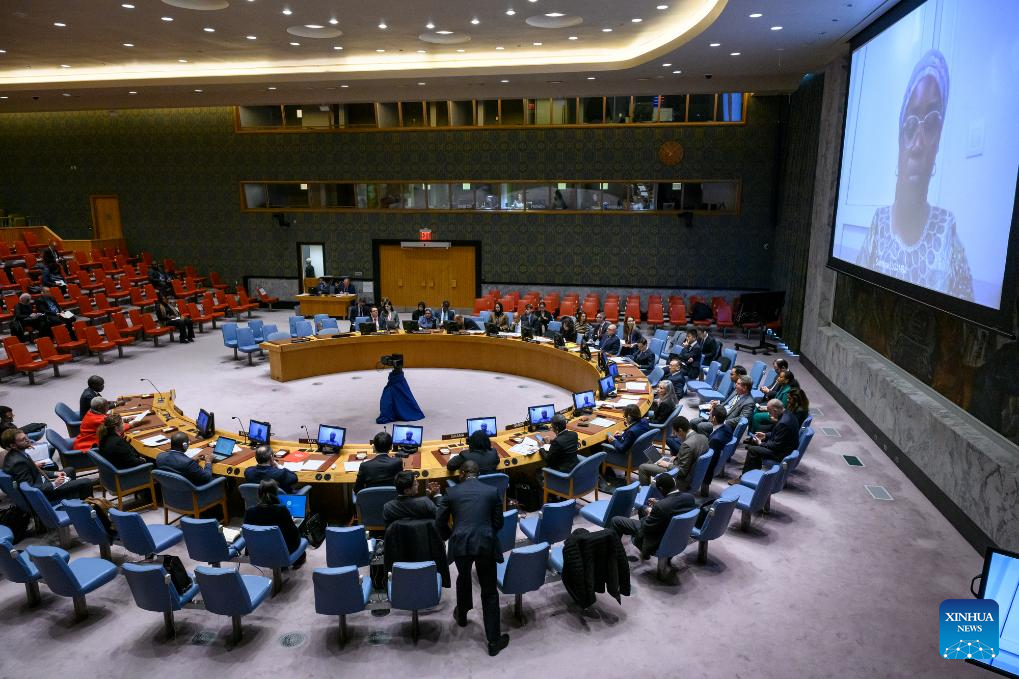
The UN Security Council holds a meeting on the situation in the Democratic Republic of the Congo at the UN headquarters in New York, on Dec. 11, 2023. The top UN envoy in the Democratic Republic of the Congo (DRC), Bintou Keita, on Monday warned of the possible escalation of tensions between the DRC and Rwanda. (Loey Felipe/UN Photo/Handout via Xinhua)
Photos
Related Stories
Copyright © 2023 People's Daily Online. All Rights Reserved.






